Introducing Asexuality, a guest post by Laura Perenic
 Sometimes being Asexual feels like something I’m not instead something I am. I am not heterosexual. I am not homosexual. I am not gay, lesbian, transgender, or bisexual. I am the A at the end of LGBTQIA that many interpret to mean ally; the A for Asexual that sometimes gets left off. It is confusing and frustrating to be just 1% of the population. I don’t know anyone beyond the internet who is Asexual. I’ve joined online groups and read anything I can find. Pages like AVEN – The Asexuality Visibility and Education Network gave me a lot of great information. But I still don’t feel connected to the community. I do not speak for fellow Aces, our identifier of choice. Being Ace feels a bit anticlimactic. I’ve never seen an Ace pride parade. I didn’t have a big coming out. When I reveal my status to people they tell me on some level they always knew. If I was being so obvious it’s interesting that it took me so long to realize it for myself.
Sometimes being Asexual feels like something I’m not instead something I am. I am not heterosexual. I am not homosexual. I am not gay, lesbian, transgender, or bisexual. I am the A at the end of LGBTQIA that many interpret to mean ally; the A for Asexual that sometimes gets left off. It is confusing and frustrating to be just 1% of the population. I don’t know anyone beyond the internet who is Asexual. I’ve joined online groups and read anything I can find. Pages like AVEN – The Asexuality Visibility and Education Network gave me a lot of great information. But I still don’t feel connected to the community. I do not speak for fellow Aces, our identifier of choice. Being Ace feels a bit anticlimactic. I’ve never seen an Ace pride parade. I didn’t have a big coming out. When I reveal my status to people they tell me on some level they always knew. If I was being so obvious it’s interesting that it took me so long to realize it for myself.
A great resource is The Asexuality Archive. They establish a definition of Asexual as “Asexuality is a sexual orientation, like heterosexuality or homosexuality, etc., but instead of being sexually attracted to men or women, asexual people are sexually attracted to no one. This doesn’t mean we all hate sex or avoid it, it just means we don’t find people sexually attractive.” The challenge of this definition is while encompassing the basics it still doesn’t include all the facets of being Ace. Sexuality has a spectrum often represented with the terms in LGBTA. Ace has its own spectrum and includes Grey-sexual and Demi-sexual.
ADVERTISEMENT
ADVERTISEMENT
Grey-sexual: An umbrella term for a person who falls between sexual and asexual on the spectrum. A demisexual person only rarely experiences sexual attraction or only under specific circumstances.
Demisexual: A person who only experiences sexual attraction to someone once they have formed a strong emotional bond to that person.
In school to say that I had no interest in dating would be an understatement. Not only did I not want to date but I couldn’t understand people who did. The entire process seemed confusing and also something I wanted no part of. Sure I dabbled, went to prom and played spin the bottle but the results were the same. Or the lack of results. It can be difficult to click with people without sexual chemistry. Even if you don’t desire someone, you have a connection with people who date or marry because its something you yourself have done. Unless you haven’t and things start to feel like a game where everyone else knows the rules. Many years into being an adult I still had a lot of questions about why my interaction with people were so different. I don’t know where I first learned the term Asexual. It felt more correct than anything I used to label myself. When I began to reveal to people that I was Ace I was mostly happy with the response. Many people told me that could tell that I was different but never really could explain it; choosing Ace seemed accurate to them as well. Interestingly a lot of people still don’t know I am Ace. This article will be a bit of an unmasking of for me. While I haven’t experienced a lot of overtly negative responses to being Ace the hardest part as with many things is just the lack of understanding. I find that talking about it with people seems to make them profoundly uncomfortable. They will change the conversation to nearly anything else rather than hear about my orientation.
I remember being at a Teen Think Tank training. It’s a twice yearly conference in Ohio with lots of libraries who serve teens. A speaker was reviewing new books to appeal to LGBTQIA teens. When she got to A, when she actually shared books about being asexual I never felt so simultaneously visible and hidden. I was thrilled that she found books with characters like myself. But I was still uncomfortable sharing that I was Ace. I couldn’t bring myself to state my identity because then and now I still have this fear. I still think of myself as what I am not. How in this sex saturated society do I explain that I don’t want to have sex? That I don’t feel sexually attracted to anyone regardless of gender? That I see beauty in a great variety of people. That I don’t have a type. I fear being called prude or frigid. I fear people trying to convert me. I don’t always understand me but not being understood by others feels achingly daunting.
I admit when I read teen fiction I struggle to understand the motivations of the hormonally driven characters. While teens at work are a constant source of puzzlement, the teens in books I read are even more of a conundrum. For me books with Ace characters make such a strong impression. I recently read Haters by Jesse Andrews. As Ash recounts that she neither likes boys or girls I really focused in on her character. I thought to myself “yes, she is ace,” and I instantly understood her so much more. With so few Aces to connect with in real life I am always alert for Asexual characters in Teen Fiction. There are more options in Adult Fiction and even in film or on tv. I was delighted to learn, as a lover of anime and manga, that many characters from Hayao Miyazaki’s films are thought to be Asexual. Most notably Nausicaä, from Nausicaä of the Valley of the Wind’s lead, Nausicaä. (Asexuality in Fiction). Check out the YALSA book list on Asexuality in Young Adult Fiction for more titles to explore. Another good source for general information is the Asexual Awareness Week site.
 Aces identify each other with the black, white and purple Ace flag or similarly striped triangle. The color scheme is common for clothing as well as our websites. Since asexual people prefer the term Ace you will see the use of the Ace symbol found on playing cards. Within the Ace community we have some jewelry aspects we considering telling and some common references that help identity us within the group. (I’m conflicted about saying more because I don’t want to out others as Ace. I think signs are for other Asexuals to find each other).
Aces identify each other with the black, white and purple Ace flag or similarly striped triangle. The color scheme is common for clothing as well as our websites. Since asexual people prefer the term Ace you will see the use of the Ace symbol found on playing cards. Within the Ace community we have some jewelry aspects we considering telling and some common references that help identity us within the group. (I’m conflicted about saying more because I don’t want to out others as Ace. I think signs are for other Asexuals to find each other).
In media, social media and in my own life I would love to see more representations of the Asexual orientation. It is far too easy to find references, comics and other content that treat my sexuality as of more a biological conundrum than a facet of humanity. Being Asexual doesn’t make us all virgins, single or religiously pious. I don’t want to speak for the whole Ace community. There is a lot of variety in our 1% that includes Asexuals who do have sex, marry and have children. I want Asexuality to be a legitimate part of the spectrum.
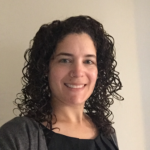 Meet Laura Perenic
Meet Laura Perenic
Laura Perenic lives in Ohio where she works as a youth services librarian. She enjoys spoiling her dog and getting up very early in the morning to run.
Filed under: #SJYALit
About Amanda MacGregor
Amanda MacGregor works in an elementary library, loves dogs, and can be found on Twitter @CiteSomething.
ADVERTISEMENT
ADVERTISEMENT
SLJ Blog Network
Name That LEGO Book Cover! (#53)
Cover Reveal and Q&A: The One and Only Googoosh with Azadeh Westergaard
K is in Trouble | Review
Fighting Public School Book Bans with the Civil Rights Act
ADVERTISEMENT



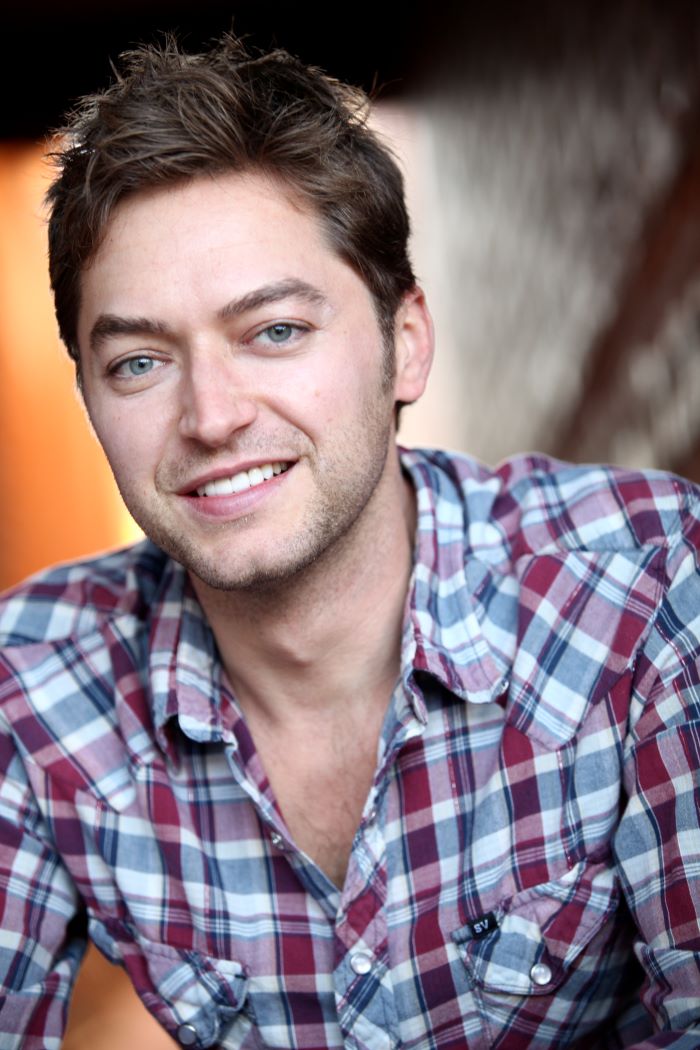
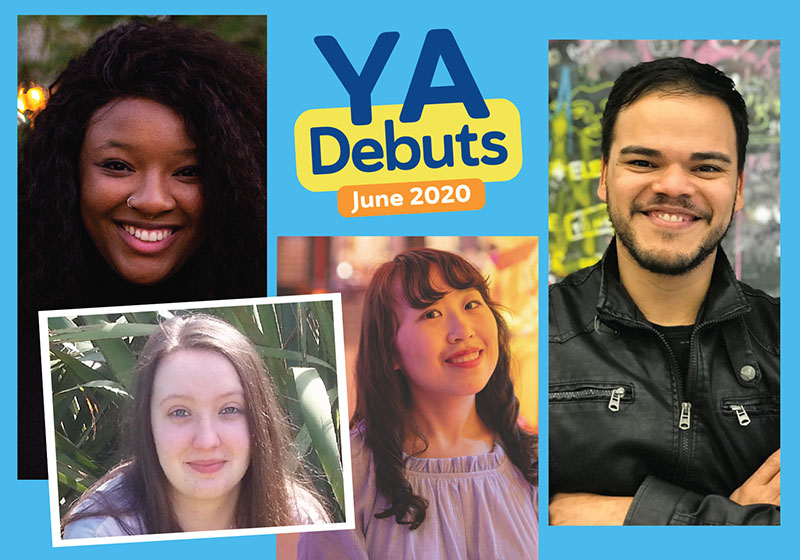

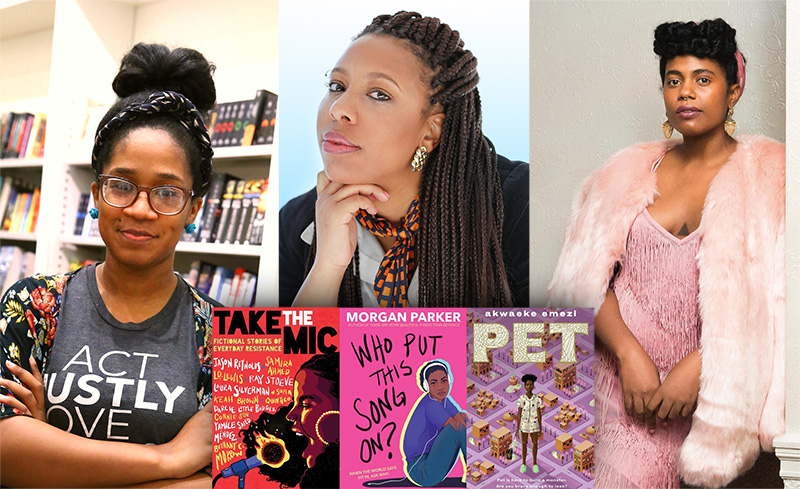
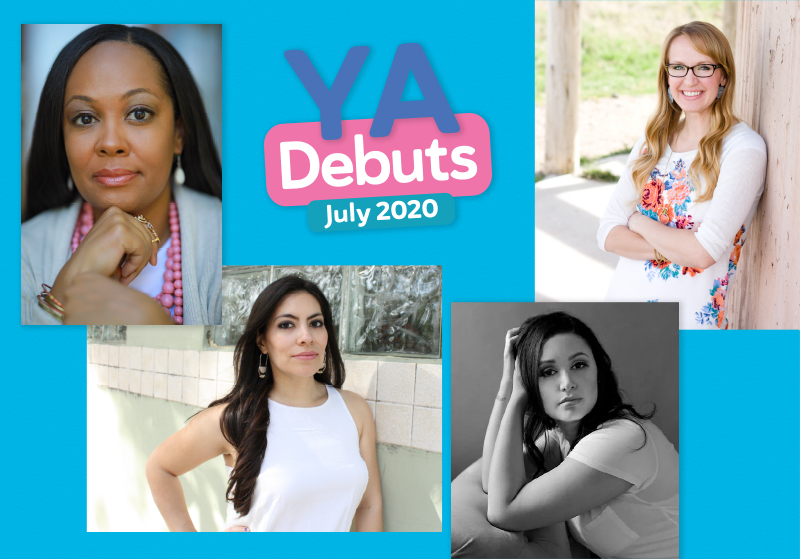
Thank you so much for writing this piece!
You’re welcome.
Thank you for sharing! I didn’t discover the term “ace” until I was well into my 30s, and it was like a lightbulb going off. I always felt odd and out of place when people would talk about sexual relationships. Honestly, I kinda thought they were making up that whole wanting to touch other people thing because it was just so different from what I felt. I too would love to see more ace visibility. I think if I had been able to define myself and connect with others at a younger age, I would have been a lot more comfortable with who I am.
It took me until my 30s to make this discovery as well. I have found that most people are just curious about what this means for me. I still feel odd in a lot of situations. I don’t like watching sex scenes on tv. I like being more open and free with people about what I like and what makes me uncomfortable. I still meet people who want to tell me what to think and feel about being Ace when they are not Ace themselves. I think you would get that sort of unhelpful advice regardless of your sexuality though.
I still feel a sense of… relief, maybe?… whenever I read about asexuality, even though I feel still “not quite” –I’m demi, and I wouldn’t feel right identifying as queer because I am heterosexual, just very selectively so– but just because it’s so rare that people acknowledge that not everyone feels “of course you want sex it’s only natural,” I get that little jolt of happiness whenever asexuality comes up, as if they WERE fully talking about me, even though I’m married to a man and have two kids and I’m actually a hopeless romantic (Aromantic, I am DEFINITELY not. More like panromantic. But sexual? Very selective). I like romance in my stories, but I prefer mental-emotional romance to physical– I want the flirting, not the kissing! A somewhat bewildering key moment in my understanding of myself was watching behind the scenes commentary things of the Mary Poppins movie, and everyone’s talking about how they wanted to make clear that Mary and Bert’s relationship was platonic, and they’re like “I think we did that very well” regarding the chalk painting scene, and I’m like “BUT THE CHALK PAINTING SCENE IS THE HEIGHT OF MY ROMANTIC IDEAL what are they talking about maybe I’m weird” (not that that was the first time I ever thought I might be weird, but).
There’s so much nuance, and I love that the asexual community is so clear about the spectrum aspect of it. I feel like the traditional idea of what’s “proper” is how I actually feel, people waiting for marriage and all, so when people are like “that’s so unrealistic, that cleaning up of romance, we need to show that sex is positive!” I always felt, like, “…but….” Some sort of prude who can’t get with the times. The asexual community has given me language to understand that it’s not about prudishness after all.
I empathize with the worries over a prudish label. I am not a nun. I am not abstaining from sex. I just don’t desire or require it. Its as easy for me as passing on cigarettes. I do find when I review materials I have to really focus on how the relationships are presented because I know my perspective on those interactions aren’t the norm. I wonder how different sexualities would view what I am reading.